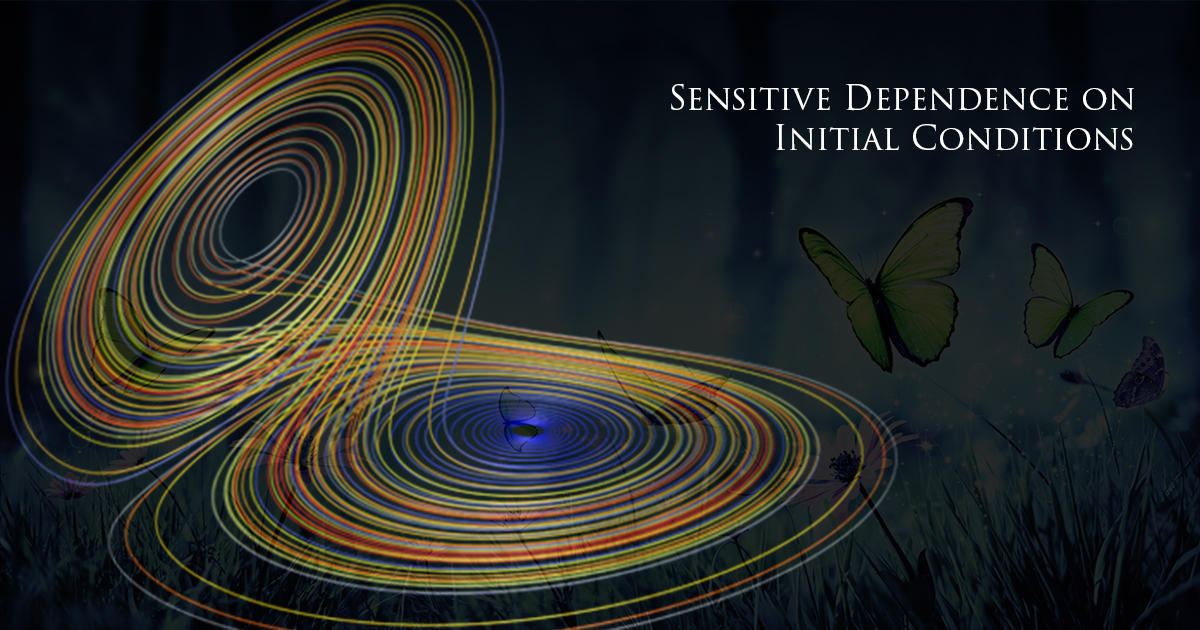There is an idea that action as minuscule as a butterfly flapping its wings can have a massive consequence, like causing a tornado on the other side of the planet in this case.
This idea is called “Sensitive Dependence on Initial Conditions”. It is more commonly known as the ‘Butterfly Effect’. It is a view that small things can have non-linear impacts on a complex system.
A single act like the butterfly flapping its wings cannot actually cause a tornado. That is just a metaphor. However, small events can influence and serve as catalysts that react to initial conditions.
The term “The Butterfly Effect” was coined by a meteorologist and mathematician named Edward Lorenz. During the 1950s, Lorenz was attempting to model a weather prediction system. During his experiments, he ran a simulation with an initial condition of 0.506127.
In a follow-up, he used 0.506 as the initial conditions instead. This resulted in a surprisingly different result. A small change of 0.03 percent in value had resulted in a massively different prediction.
Lorenz went on to publish an award-winning paper named Deterministic Nonperiodic Flow, in which he concluded that weather prediction models are inaccurate because knowing the precise starting conditions is impossible and a tiny alteration can produce massively different results.
To make it easier for non-scientific audiences to understand the concept, Lorenz began using the butterfly analogy. He explained that a butterfly has the potential to cause a tiny change. While it cannot create a tornado, this tiny change could have massive implications in complex systems.
In the early 1900s, a young Adolf Hitler’s application at the Academy of Fine Arts in Vienna was rejected. If his application had not been rejected, his life may have taken a different path. We can only speculate as to how the history of the world would have been different.
Every action has the potential to have far-reaching implications but sometimes they may be inconsequential. It is just virtually impossible to know which will turn out to be the case. Every action can come with effects that just can’t be predicted.
Everything around us is chaotic, entropic and prone to sudden change. We can try to create favorable initial conditions and be mindful of various catalysts that could react to those conditions but that is about it. We can’t identify every catalyst or predict every possibility.









Comment